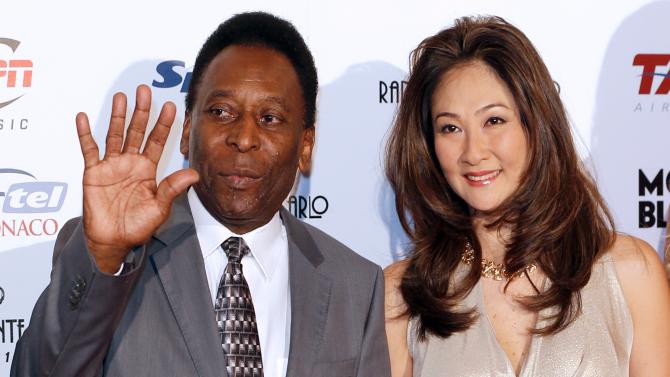
Black men of means and wealth in Brazil do not marry black women because a white women in their opinion is a symbol of status and elevation to aristocracy.
This study that The Root tooked at that started in In 1965 with Ebony magazine. Then Ebony published a 10-page spread about Brazil with the headline, “Does Amalgamation Work in Brazil: Absorbing Negro Through Interracial Marriage Is Their Answer to the Race Problem.”
“Interracial couple walking hand in hand is not unusual,” the caption read. “But unless the dark girl is the boy’s cultural or economic superior, chances are they will never wed. Black and mulatto men marry white women to improve social status.”
According to reports, the social climate in South American country has not changed much since the middle of the previous century.
The 2010 census in Brazil showed that out of all the women over 50 who had never had a spouse, a majority of them were “pretas,” a term commonly used to refer to dark-skinned black women. It’s also obvious to all Brazilians that once black Brazilian men attain a certain social status, they choose white women as their life partners. Brazil’s most famous soccer player, Pelé, has been married three times, but never to a black woman. Nearly all of Brazil’s top male samba singers are married to white women. A study conducted of high-level black Brazilian businessmen in 2011 found that out of the 50 interviewed, 49 were married to white women
Black Brazilian actress Polly Marinho, says Black men often desire white women because it’s a sign of prosperity to be able to marry a non-Black woman.
“We are educated to think, like, that black is not beautiful. Black is a slave. Black is not good,” said Marinho, who recently starred in a popular television show on Brazil’s largest television network. “Let’s take, for example, a very famous black soccer player. When they want money, they want good things. A beautiful house. A Ferrari and a white, white, blue-eyed chick.”
Despite Brazil’s reputation for interracial dating and marrying, race is still the predominant factor in choosing a marriage partner—70 percent of Brazilians marry within their race. This number hasn’t changed in the last 10 years, but in 1980, the number was 80 percent, meaning that today, 30 percent of Brazilians are in interracial marriages. By comparison, most recent data shows that 15 percent of all new marriages in the United States are between spouses of a difference race or ethnicity.
But these statistics don’t tell a complete story for black women or well-off blacks.
Photo: Getty
